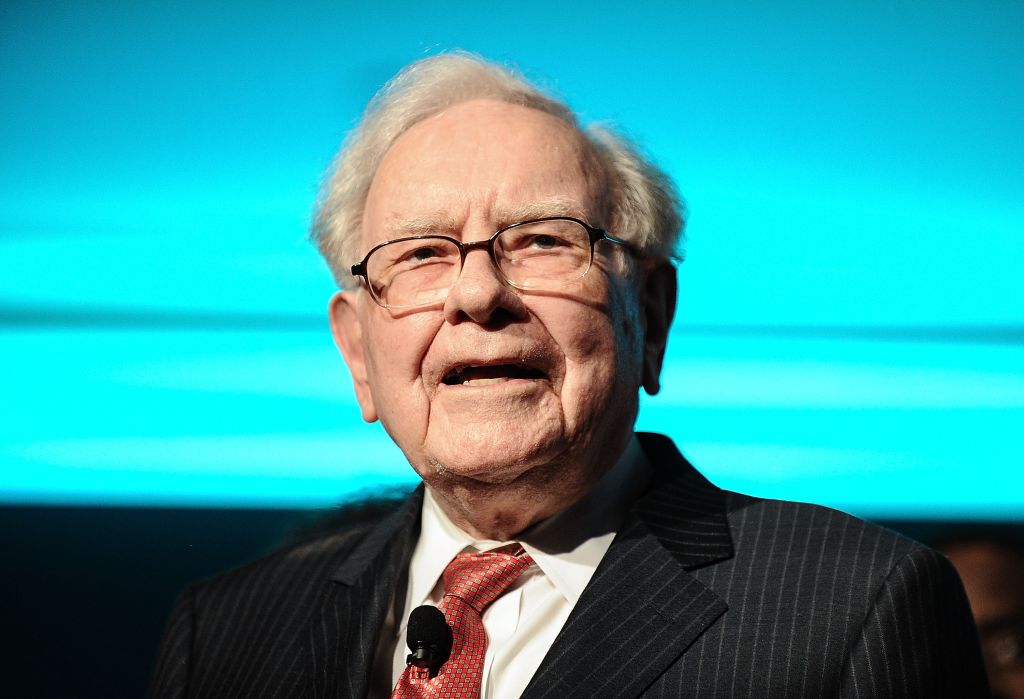What MoneyWeek writers read and watched in 2025
Here's a roundup of MoneyWeek's favourite books, films and TV shows in 2025


Get the latest financial news, insights and expert analysis from our award-winning MoneyWeek team, to help you understand what really matters when it comes to your finances.
You are now subscribed
Your newsletter sign-up was successful
Want to add more newsletters?
The best films and TV

The art world has seen no shortage of fraudsters over the years, but few as brazen as rogue dealer Inigo Philbrick, who gained a reputation as one of the top art dealers of his generation before being exposed. Philbrick would sell the same artwork to multiple buyers, relieving his victims of more than $86 million before the scam collapsed. After a global manhunt, he was found hiding on the South Pacific island of Vanuatu, and eventually jailed. The Great Art Fraud (BBC iPlayer), a two-part documentary, tells the story of his rise and fall.
What is most revealing is that all concerned were enjoying a life of excess, thanks to a soaring art market fuelled by money printing, while most of the Western world was suffering a period of austerity. Even now, all those interviewed, including Philbrick himself, treat the whole episode as some sort of jolly jape and an opportunity to promote their “personal brands”. This is a modern-day parable and provides sobering food for thought for those thinking about investing in art.
Netflix is known for its big-budget blockbuster drama series, and House of Guinness is a worthy addition to its stable of hits. The film tells a fictionalised version of the story behind the rise of the iconic Dublin brewery following the death of Benjamin Guinness in 1868. Joint heirs Arthur and Edward navigate the rising political tensions over the growing demands for Irish independence. Steven Knight has created a slick, entertaining series bolstered by a series of strong performances.
Try 6 free issues of MoneyWeek today
Get unparalleled financial insight, analysis and expert opinion you can profit from.

Sign up to Money Morning
Don't miss the latest investment and personal finances news, market analysis, plus money-saving tips with our free twice-daily newsletter
Don't miss the latest investment and personal finances news, market analysis, plus money-saving tips with our free twice-daily newsletter
The best business books

It’s been hard to avoid Taylor Swift in recent years. The pop star has been courted by presidential candidates and been the centre of attention at the Super Bowl. And there’s no denying that she has managed to leverage her popularity into hard cash – and lots of it. Fortune has estimated her net worth at $1.6 billion. Not bad for someone who was turned down by multiple record labels when starting out. Kevin Evers, a senior editor at Harvard Business Review, looks at her trajectory in There’s Nothing Like This: The Strategic Genius of Taylor Swift, which offers a business-focused analysis of her remarkable career.
Evers acknowledges Swift’s song-writing talent, but focuses on her pivotal early alliance with Scott Borchetta, who nurtured her creative vision and spotted the overlooked and untapped market of teenagers yearning for a country artist who mirrored their aspirations. The pair then worked to transform Swift’s appeal while retaining her core fans. The book is original and unorthodox and full of lessons about creating and developing brands. Even those weary of the relentless coverage of Swift will gain an appreciation for her business acumen and what Evers aptly terms her “spunk, confidence and determination”.
Business memoirs are usually either bland or opportunities for shameless chest-beating and score-settling. Surprisingly for a tech titan, Source Code by Bill Gates is instead both readable and relatively modest. In the first volume covering his childhood and the creation of Microsoft, Gates acknowledges the role that his comfortable upbringing, supportive family and luck, in the form of access to computers while still at school, played in his success. It is a fascinating look at one of the most successful business leaders in history and at postwar American life.
The best investment books

Conglomerates have a bad reputation for being a monument to managements’ vanity and empire-building. Studies suggest that they generally underperform more streamlined firms. Warren Buffett’s Berkshire Hathaway, however, has shown that they can work when used as holding companies. One book that will help you spot the next Berkshire is The Compounders: From Small Acquisitions to Giant Shareholder Returns by Oddbjorn Dybvad, Kjetil Nyland and Adnan Hadziefendic. It looks at nine other companies that have followed a Buffett-style strategy successfully, producing high returns for their shareholders.
Each of the firms profiled has taken a slightly different path, but the authors do a great job of showing what they have in common, including a decentralised corporate structure, iron discipline when adding to their portfolio and a ruthlessness about ensuring that the cash flows generated by the various parts of their empires are reinvested in the most efficient way possible. There’s no guarantee that their great record will continue, but the book provides important lessons that will maximise your chances of spotting the next Berkshire.
Virtually all investment books are written from the perspective of the investor. By contrast, The CEO’s Guide to the Investment Galaxy: Navigating Markets to Build Great Companies, by Sarah Keohane Williamson, considers investing from the perspective of firms wanting to raise money and maintain good relations with their investors. The book is written in a simple, direct style that explains the core issues in a clear way, which cuts through the jargon and propaganda. Investors who don’t own or run companies will benefit from considering things from the perspective of those sitting on the other side of the table.
The best politics books

Keir Starmer is facing an uncomfortable Christmas in Downing Street, with Labour doing poorly in the polls and Cabinet rivals circling around him. But the fact that he took the party from opposition to Downing Street in the first place puts him in a small group of post-war Labour leaders, along with Clement Attlee, Harold Wilson and Tony Blair. Get In: The Inside Story of Labour Under Starmer, by Patrick Maguire and Gabriel Pogrund, traces his path to victory.
The book is entertaining and does an excellent job of capturing every twist and turn, showing how Starmer outmanoeuvred his rivals and sidelined the Corbynites, and how close he came to quitting after the disastrous Hartlepool by-election in 2021 and the “Beergate” scandal, when briefly it looked possible that both Starmer and his then deputy, Angela Rayner, might have to resign. The central figure is Morgan McSweeney, Starmer’s campaign manager (and since October 2024, Downing Street chief of staff). The book makes the case that Starmer and his team spent a long time preparing the campaign that would win them power, but not nearly enough time planning what to do with it once they got it.
Those who grew up in the 1980s and early 1990s may remember the adventure game books that let you pick one of several different paths to follow. In Can You Run the Economy? It’s Your Turn to be Chancellor, Bloomberg’s Joe Mayes masterfully revives the format to explain the role of the second most powerful person in government. You are tasked with balancing the nation’s finances while helping win an election. This is an original and intelligent book that gives a good overview of what it is the chancellor actually does.
The best dramas

NatWest was finally returned to full private ownership this year, and the whole sorry tale of how it was caught up in a bailout that cost British taxpayers billions was told in Make It Happen, which ran at the Edinburgh International Festival in August. Written by James Graham, the play deals with the dramatic rise and fall of the Royal Bank of Scotland (RBS) and chronicles Fred Goodwin’s journey from taking over as CEO to his ambition-fuelled leadership that briefly made RBS into the world’s largest bank.
The real meat of the play is the relationship between Goodwin and the ghost of his idol, Adam Smith, who visits him and acts as the play’s moral compass. As fans of Succession might expect, Brian Cox delivered a masterful performance as the founder of modern economics. Nothing has been confirmed, but we would be amazed if at some point the play didn’t end up either transferring to the West End or touring next year – and if it does, it’s definitely one to watch out for.
Joe Murphy and Joe Robertson’s Kyoto has just finished a run on Broadway and we caught it at London’s Soho Place back in April. It tells the story of the attempt to get a global agreement on carbon emissions from the perspective of energy lobbyist Donald Pearlman (portrayed by Stephen Kunken), who tries to sabotage any deal by sowing discord among the various national delegations and political blocs.
Pearlman’s efforts are ultimately in vain owing to the resolute leadership of Raul Estrada (Jorge Bosch), who evolves from being an unassuming presence to becoming a figure of steely determination who overcame the seemingly insurmountable obstacles that threatened to derail any consensus. The play is a compelling and thought-provoking piece of theatre.
Writing a book about growth investing at the peak of what many see as another tech bubble is certainly a gutsy move. But David Gardner, co-founder of The Motley Fool website, has a stellar record to back it up. His tips have beaten the market by an average of 10% a year over the past two decades. In Rule Breaker Investing: How to Pick the Best Stocks of the Future and Build Lasting Wealth, Gardner outlines a number of criteria that he thinks can help you spot such top performers, both in terms of the quality of the business and the share price.
The reason why many of the most famous brands have strong followings is that they are able to appeal to our need to be part of a group and to attain and maintain a high status within that group. One way to achieve this is through storytelling. A Story is a Deal: How to Use the Science of Storytelling to Lead, Motivate and Persuade by Will Storr demonstrates how good storytelling can transform every aspect of a business, from its marketing to its human-relations policies. This is a well-written and enjoyable book that enhances the reader’s grasp of the power of words and stories.
Private investors consistently get worse results than they could have had from a simple index-tracker, mainly because they are far more prone to making unnecessary errors that eat into their returns. How Not to Invest: The Ideas, Numbers and Behaviours that Destroy Wealth – And How to Avoid Them by wealth manager Barry Ritholtz focuses on those errors that most seriously damage your wealth, from paying too much attention to forecasts to letting our emotions distract us. The book is full of wisdom and a reminder that even an average performance will put you far ahead of many investors.
This article was first published in MoneyWeek's magazine. Enjoy exclusive early access to news, opinion and analysis from our team of financial experts with a MoneyWeek subscription.
Get the latest financial news, insights and expert analysis from our award-winning MoneyWeek team, to help you understand what really matters when it comes to your finances.

-
 8 of the best properties for sale with minstrels’ galleries
8 of the best properties for sale with minstrels’ galleriesThe best properties for sale with minstrels’ galleries – from a 15th-century house in Kent, to a four-storey house in Hampstead, comprising part of a converted, Grade II-listed former library
-
 The rare books which are selling for thousands
The rare books which are selling for thousandsRare books have been given a boost by the film Wuthering Heights. So how much are they really selling for?
-
 Why annuities are back in fashion for retirees
Why annuities are back in fashion for retireesThe appeal of annuities has been boosted by higher interest rates. So should you buy an annuity with part of your pension savings?
-
 Default pension funds: what’s in your workplace pension?
Default pension funds: what’s in your workplace pension?Default pension funds will often not be the best option for young savers or experienced investors
-
 Plan 2 student loans: a tax on aspiration?
Plan 2 student loans: a tax on aspiration?The Plan 2 student loan system is not only unfair, but introduces perverse incentives that act as a brake on growth and productivity. Change is overdue, says Simon Wilson
-
 Why it might be time to switch your pension strategy
Why it might be time to switch your pension strategyYour pension strategy may need tweaking – with many pension experts now arguing that 75 should be the pivotal age in your retirement planning.
-
 Rachel Reeves is rediscovering the Laffer curve
Rachel Reeves is rediscovering the Laffer curveOpinion If you keep raising taxes, at some point, you start to bring in less revenue. Rachel Reeves has shown the way, says Matthew Lynn
-
 ISA reforms will destroy the last relic of the Thatcher era
ISA reforms will destroy the last relic of the Thatcher eraOpinion With the ISA under attack, the Labour government has now started to destroy the last relic of the Thatcher era, returning the economy to the dysfunctional 1970s
-
 Investing in forestry: a tax-efficient way to grow your wealth
Investing in forestry: a tax-efficient way to grow your wealthRecord sums are pouring into forestry funds. It makes sense to join the rush, says David Prosser
-
 'Expect more policy U-turns from Keir Starmer'
'Expect more policy U-turns from Keir Starmer'Opinion Keir Starmer’s government quickly changes its mind as soon as it runs into any opposition. It isn't hard to work out where the next U-turns will come from